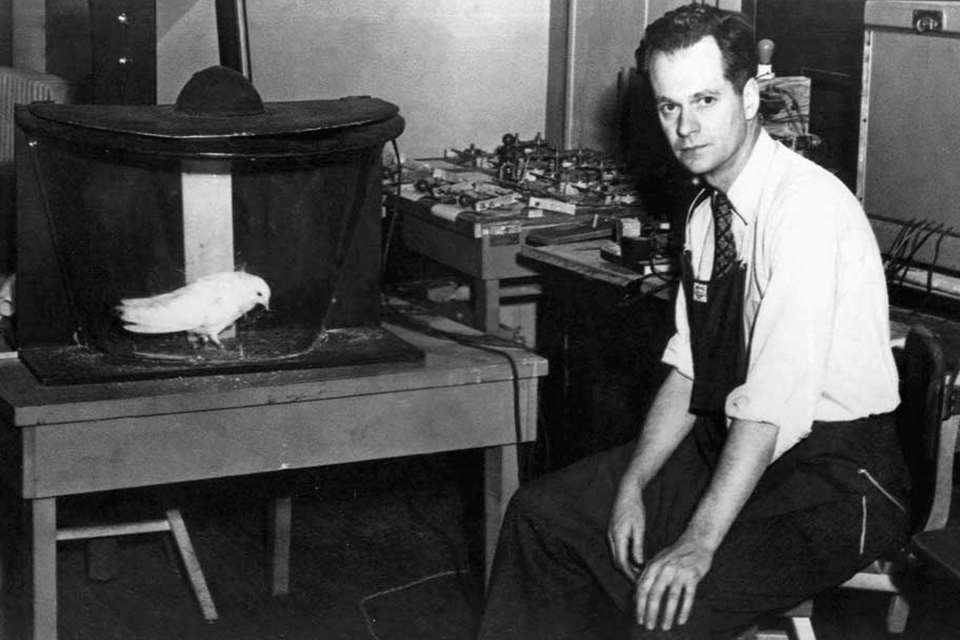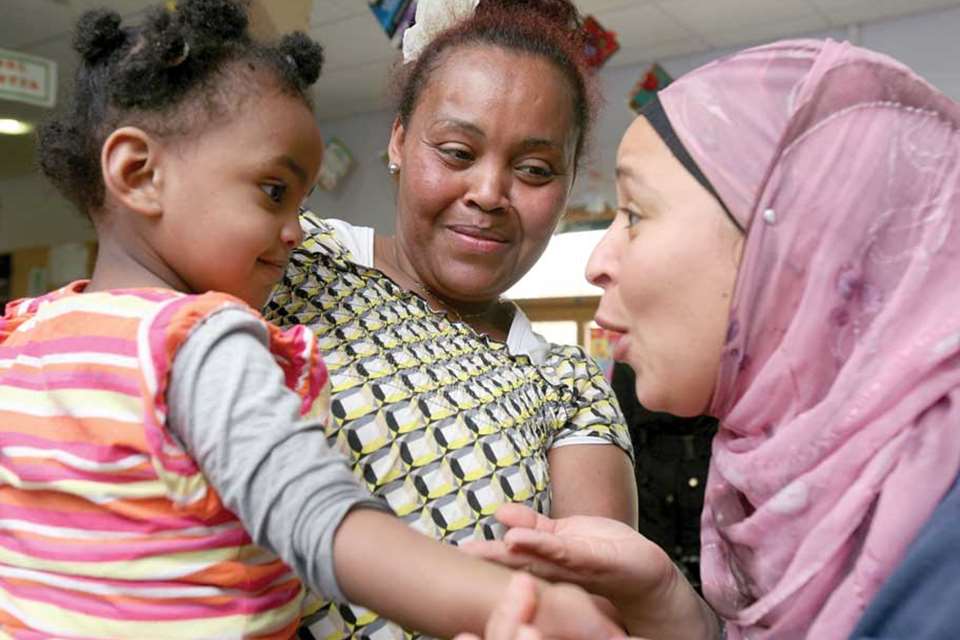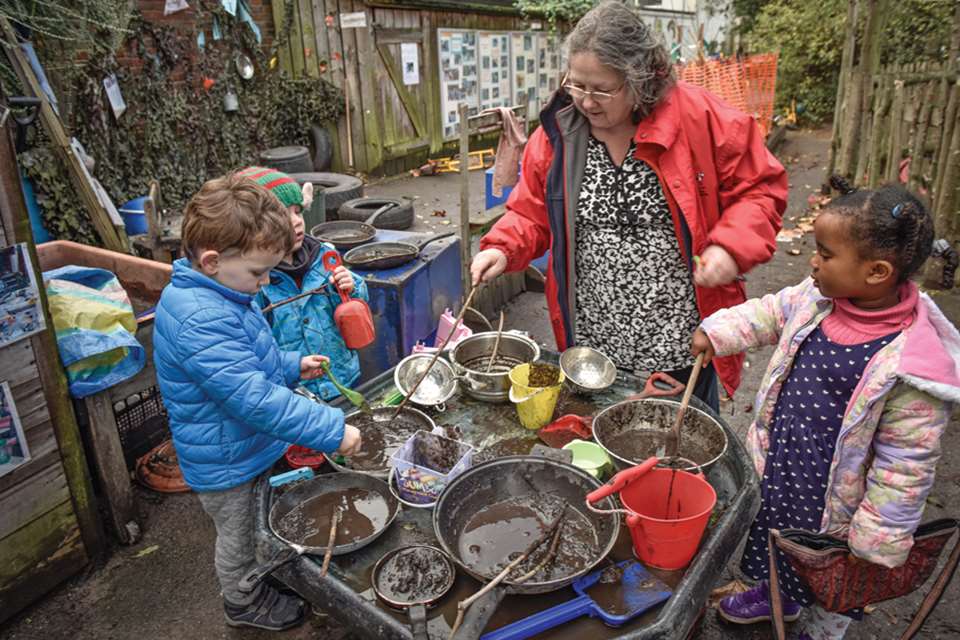Early Years Pioneers - Margaret and Rachel McMillan
Ruth Thomson
Monday, August 24, 2015
Margaret (1860-1931) and Rachel (1859-1917) McMillan made real advances in early childcare, and their ideas still resonate today, says Linda Pound

Sisters Margaret and Rachel McMillan were born in Westchester County in New York State. While they were still very young, in 1865, both their father and younger sister died of scarlet fever - an illness which also left Margaret deaf until the age of 14. Their mother decided to return to Scotland where they lived with their maternal grandparents.
Both sisters were devout Christians and staunch socialists with strong feelings about the plight of the poor. Together, they spent some time in London in the late 1880s, but moved to Bradford after Margaret was dismissed by her employer for speaking on behalf of the socialists at Speakers' Corner. In Bradford, Margaret did much to support the development of the Labour Party.
For both sisters, political activism was merely a means to achieve change for the poor and downtrodden members of society. As a member of the Bradford School Board, Margaret was responsible for ensuring that Bradford was the first school board in Britain to offer a school medical service, school meals and baths.
 In 1895, Rachel became a health inspector in Bromley in Kent and seven years later Margaret joined her. In the following year Margaret became the manager of a group of elementary schools in Deptford.
In 1895, Rachel became a health inspector in Bromley in Kent and seven years later Margaret joined her. In the following year Margaret became the manager of a group of elementary schools in Deptford.
Together, the sisters lobbied Parliament to provide compulsory school medical inspections - a measure made law in 1907. Sadly, children under five were exempt from this provision and it was this that led Margaret to seek to set up nursery provision.
 A clinic designed to cater for young children was set up in Deptford, a very poor area of south-east London in 1910. The difficulties of recruiting soldiers for the Boer War, which began in 1899, had highlighted the parlous state of the nation's poor. Clinic staff reported that their efforts were often a waste of time, since children's living conditions were so poor that once treatment ceased the ailments they suffered from simply returned. What they needed was fresh air, sunlight and good food. The sisters determined to take a more preventative course of action.
A clinic designed to cater for young children was set up in Deptford, a very poor area of south-east London in 1910. The difficulties of recruiting soldiers for the Boer War, which began in 1899, had highlighted the parlous state of the nation's poor. Clinic staff reported that their efforts were often a waste of time, since children's living conditions were so poor that once treatment ceased the ailments they suffered from simply returned. What they needed was fresh air, sunlight and good food. The sisters determined to take a more preventative course of action.
ACHIEVEMENTS
In 1911, Rachel and Margaret established a night camp for girls, where showers were available before bed and breakfast provided in the morning. This was followed by the opening of a night camp for boys. So successful was this experiment in improving children's health and behaviour that an open-air school for children from the age of six to 14 was set up - with a focus on holistic education. The school's motto, which it is said that Rachel coined, was to 'educate every child as if he were your own'.
Just as they had seen the need for preventative measures in the field of health, so now they saw the need for beginning their work with children of a younger age. Thus they set up the Baby Camp in 1914.
After Rachel's death in 1917, it was renamed the Rachel McMillan Open Air Nursery. The nursery stands today in its original location with many of its original features, including a bath. Rooms are still called shelters - the term originally used because in combating disease, especially tuberculosis, fresh air was of paramount importance.
Unsurprisingly, in what was termed an open-air school, physical movement was considered to be vital. The garden was described as 'the essential matter'. Margaret believed that from one to seven years of age, children needed space in which to run, explore and to feel 'life in every limb'. For her, free activity was key to the development of self-control. She argued that regular school hours were of insufficient length to ensure that children were given time for play, rest and activity. Health and movement were not seen simply as key to physical development, but as laying a strong foundation for lifelong learning.
Margaret argued that a standard school day was not long enough to achieve what she thought necessary for the children of Deptford and set up an extended day. At the same time, she was conscious of the need to work with parents, involving them both for their own sake and that of their children. She believed that trained specialist teachers were a vital for successful early childhood education and opened a training college, built alongside the nursery in Deptford.
Margaret was to receive many accolades in her lifetime, including a CBE and a Companions of Honour award. She served on the education committee of the London County Council from 1919, and in 1923 was elected the first president of the Nursery Schools Association (later renamed the British Association for Early Childhood Education and today known as Early Education). Shortly before her own death, Margaret suggested that she wished that her sister Rachel had lived so that she could have been granted the decorations and praise.
She spoke on the radio about the Deptford nursery which was visited by such notables as George Bernard Shaw and Queen Mary. Queen Mary's visit is included in a short piece of video about the nursery, entitled 'Nursery Days' (www.britishpathe.com/video/nursery-days). Children are seen eating, sleeping and playing in the extensive garden.
Rudolf Steiner shared with her an insistence on the power of the imagination and the essential value of play. Commenting on Margaret's book Education Through the Imagination, Steiner agreed that imagination is the driving power of life and that trainers and educators should make use of this in supporting children's learning and development.
CRITICAL CONSIDERATIONS
The sisters argued that economies of scale would lead to more widespread provision. At one point the nursery school in Deptford catered for 500 children, which some saw as too large an institution for such small children.
Some critics feel that the approach professionalises parenting. The long day from 8am to 5.30pm, together with middle-class habits that some might describe as middle-class values - such as flowers on the meal tables, may be thought of as undermining working-class culture.
Not everyone agreed that qualified staff were necessary in the care and education of very young children. Others criticised training provision for allowing the notion that this was women's work to become so entrenched that few men now choose it as a career.
Rachel and Margaret shared a view that attendance at nursery schools such as theirs would prepare all children 'for a much easier and more rapid advance than is the average child of today'. They believed that nurseries such as theirs would transform the education system 'powerfully and very rapidly'. They believed that without high-quality nursery education for all children, rich and poor, 'our whole educational system was like a house built on the sand'.
Some of us still hold that view today, but in assessing their achievement it is clear that even 100 years on this vision has not been achieved. Sadly, Margaret wrote in 1927, 'I think that, very soon, when these teachings and ideas are better known, people generally will declare themselves as socialists.'
CURRENT INFLUENCE
Today, their work does, and should, influence practice in a number of ways:
- An emphasis on imagination, play, movement and first-hand experience remains of vital importance, and, in an age of league tables, electronic toys and digital screens should not be overlooked.
- Active outdoor learning is still important. Children no longer suffer the deformed limbs and atrophied fingers that Margaret McMillan wrote of, but obesity is now an issue, particularly among poor children. Children then suffered what she describes as nasal complaints - today the complaint is asthma.
- Involvement of parents and children's contexts - we have learned much over the past 100 years about the need for a clear understanding and valuing of children's culture and background. Rachel and Margaret lived in Deptford, among those they worked so tirelessly to support.
- An emphasis on movement - this is an area where over the past 100 years we have learned much about the importance of physical action on learning and development as a whole. This is not always clearly acted on - young children still spend far too much time sitting, listening, engaged with screens - but the evidence exists and early childhood practitioners should be acting on it.
- Acting as advocates for young children - the sisters were highly successful at getting some influential people to understand the importance of early childhood. Their sense of morality and justice coupled with a belief in the power of nature, and the need for beauty in children's lives, influenced many people in their lifetime and in successive generations.
MORE INFORMATION
How Children Learn (2nd ed), Practical Pre-School Books
Influencing Early Childhood Education, L Pound (2011), Open University Press (see section 2)
Margaret McMillan: portrait of a pioneer, E Bradburn (1989), Routledge
Pioneers in Early Education, P Giardiello (2014), Routeldge
The McMillan Sisters and the 'Deptford Welfare Experiment', P Jarvis (2013), http://tactyc.org.uk/wp-content/uploads/2013/11/Reflection-Jarvis.pdf.











